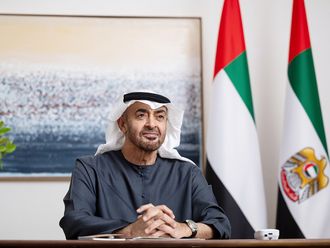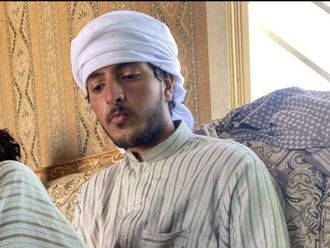Abu Dhabi: The UAE is making a quantum leap in the aerospace and space industries with an increasing number of satellites and substantial share of global investment in the sector.
Today, the UAE operates more than seven satellites, both for commercial and military satellite communications (Milsatcom) use, officials and industry executives said at the fourth annual Milsatcom Middle East conference on Tuesday.
The UAE investment in space technology is continuing to grow. Of the $300 billion (Dh1.1 trillion) international space industry, the UAE’s investment in space technology is already substantial, exceeding Dh20 billion ($5.4 billion).
The UAE Space Agency was established by President His Highness Shaikh Khalifa Bin Zayed Al Nahyan in July 2014 to help the country send the region’s first unmanned mission to Mars by 2021.
The Mars probe is a bid to send the Arab world’s first mission to another planet. The probe’s journey will take nine months and span more than 60 million kilometres.
Mohammad Al Ahbabi, Director-General of the UAE Space Agency, said the UAE leadership has made a firm commitment to keeping the country at the forefront of space development by announcing the establishment of the UAE Space Agency and the UAE’s own mission to explore Mars.
He said space technology and applications have provided improved the quality of life worldwide and global economic growth.
“Their benefits extend beyond the borders of the space-faring nations,” he said while explaining the wider implications of Milsatcom.
Military operations today depend on space and approximately 60 nations own and operate at least one satellite, he said. Space capabilities are crucial for a range of military activities, including responding to humanitarian relief after natural disasters in addition to times of war.
Masood M. Sharif Mahmoud, Yahsat CEO, said: “At Yahsat, we aim to drive satellite innovation and the next generation of defence communications. Through our government services part of the operations, YahService, we have been successful at providing end-to-end managed services to government and commercial clients.”
Staff Brigadier Mubarak Saeed Ghafan Al Jaberi, Head of Communications and IT Department at General Headquarters of the UAE Armed Forces, said the growing and changing operational requirements of military communication systems resulted from the complications of modern battlefield and net-centric warfare. This emphasises the importance of providing satellite communication solutions for field commanders in order to implement their plans and achieve informational superiority over enemies, Al Jaberi said.
Milsatcom Middle East, the three-day conference, is an invitation-only event attended by experts from the military and space technology sector, as well as industry executives.












